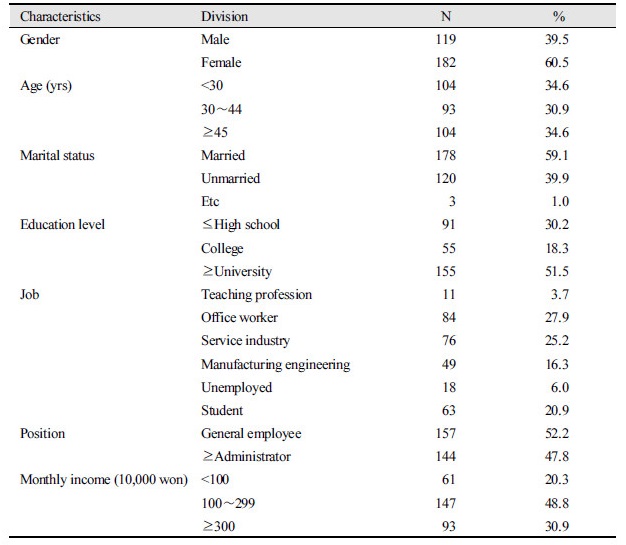Abstract
Objectives: The purpose of this study is to analyze the factors affecting the self-perceived halitosis of adults and to utilize them as basic data for the development of prevention and management program to reduce of self-perceived halitosis. Methods: A questionnaire survey of 301 adults in their 20s and 50s living in Gwangju and Jeonnam selected by convenience sampling from July 1, 2017 to August 31, 2017 was conducted to investigate oral health status and behavior, fatigue and perceived stress. Statistical analysis was performed using frequency analysis, independent t-test, one way ANOVA, Pearson’s correlation analysis, and multiple regression analysis. Results: The degree of self-perceived halitosis was higher in married (2.51) and unemployed (2.71), with tongue brushing (2.68), intention to participate in halitosis education (2.57), taking medication (2.73), coated tongue (2.82) and there was both otolaryngology and gastrointestinal disease (2.72) and periodontal disease (2.89) (p<0.05). Fatigue (=0.237), periodontal disease (=0.196), and coated tongue (=0.237) affect the self-perceived halitosis (p<0.001). Conclusions: The self-perceived halitosis in adults was correlated with fatigue and perceived stress. Also fatigue, periodontal disease, coated tongue factors were analyzed as factors influencing self-perceived halitosis. Additional studies such as prevention and management of periodontal disease and coated tongue, which is a factor of self-perceived halitosis in adults, and development of programs to reduce self-perceived halitosis for fatigue management, which is an external factor, are necessary.
Acknowledgements
본 연구결과는 2017 학년도 광주여자대학교 교내연구비 지원에 의하여 연구되었음(KWUI17- 005).
Figures & Tables

Table 1. The general characteristics of the subjects


